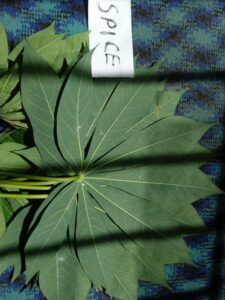When it comes to the vast and diverse culinary landscape of Africa, there are countless dishes that tantalize the taste buds and leave a lasting impression. One such dish is African Salad, also known as Abacha. This traditional Nigerian delicacy boasts a rich history, unique flavors, and a delightful combination of ingredients. In this blog post, we will take you on a culinary journey to explore the wonders of African Salad and discover why it has gained popularity not only in Nigeria but also among food enthusiasts worldwide.
Origins and Cultural Significance:
African Salad, or Abacha as it is called in the Igbo language of Nigeria, originates from the southeastern part of the country. This dish holds cultural significance and is often served on special occasions, festivals, and important gatherings. It has deep roots in the Igbo culture and represents a symbol of unity and community, as it is traditionally enjoyed by families and friends coming together to share a meal.
Ingredients and Preparation:
The star ingredient of African Salad is abacha, which refers to dried and shredded cassava leaves. These leaves are sun-dried, pounded, and then soaked in water to soften them. Other essential ingredients include ugba (ukpaka or oil bean), stockfish, ugwu (fluted pumpkin leaves), utazi leaves, ogiri (fermented oilseed paste), onions, crayfish, salt, palm oil, and various spices. The combination of these ingredients creates a flavorful and visually appealing dish.
To prepare African Salad, the softened abacha is thoroughly washed to remove any impurities and then combined with the other ingredients. The palm oil is heated, onions and spices are added, and the mixture is cooked until well blended. The ugba, stockfish, crayfish, and ogiri are then added, creating a delectable medley of flavors. Finally, the ugwu and utazi leaves are added to enhance the taste and provide a vibrant green color to the dish.
Flavorful Variations:
African Salad offers a range of delightful variations, allowing for customization according to individual preferences. Some variations include the addition of sliced utazi leaves, garden egg leaves, or the inclusion of ugba (ukpaka) sauce. These additions bring additional layers of flavor and textures to the dish, making each bite a unique experience.
Serving and Accompaniments
African Salad is often served cold or at room temperature, making it a refreshing and satisfying meal, especially during hot weather. It is typically presented on a large tray or platter and garnished with fried fish, kpomo (cow skin), onions, and sliced utazi leaves. It can be enjoyed as a standalone dish or as a side to complement other traditional Nigerian meals such as roasted or grilled meat, fish, or poultry.
Nutritional Benefits
Apart from its mouthwatering taste, African Salad also offers several nutritional benefits. Cassava leaves, the main ingredient, are a good source of dietary fiber, vitamins A and C, and minerals like iron and calcium. The inclusion of vegetables like fluted pumpkin leaves (ugwu) provides additional nutrients, while the palm oil adds healthy fats and antioxidants.
Popularity and Global Recognition:
African Salad (Abacha) has gained immense popularity in Nigeria and beyond. Thanks to the growing interest in African cuisine, it has found its way onto the menus of various Nigerian restaurants worldwide. Food enthusiasts and adventurous eaters are drawn to the unique flavors and cultural experience that this traditional dish offers.
African Salad, or Abacha, is a culinary masterpiece that represents the vibrant culture and rich heritage of Nigeria.





No comments yet, be the first to leave one!